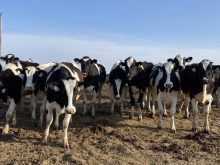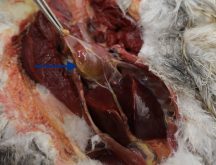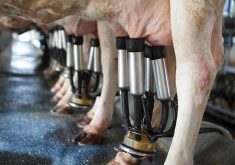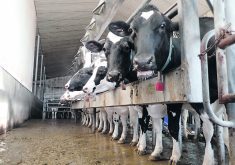The poultry virus does not pose a health risk for either food or humans but tends to affect turkeys particularly hard
Glacier FarmMedia – The first cases of avian metapneumovirus (aMPV) were detected in Manitoba last month.
In a June 3 update, the office of the provincial chief veterinary officer confirmed infections in two turkey flocks and one broiler breeder flock in Manitoba. The flocks had been experiencing clinical signs such as upper respiratory infections, increased mortalities and loss of production.
Common names for aMPV include swollen head syndrome or turkey rhinotracheitis. According to the World Organization for Animal Health, the disease caused by aMPV was also originally known as avian pneumovirus infection or avian rhinotracheitis.
Read Also
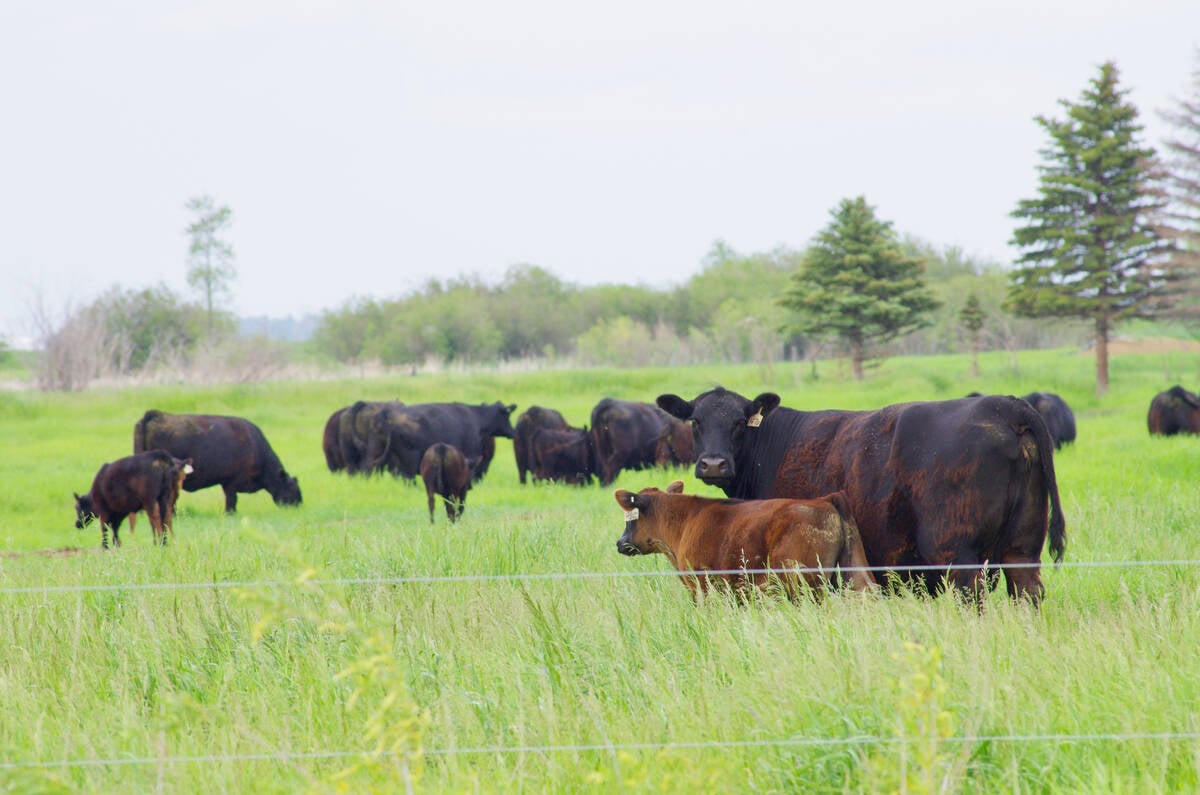
Tick research from the University of Manitoba focuses on insects and testing
Manitoba researchers are looking into the effects of tick and fly disease in cattle.
Manitoba Agriculture describes the disease as a highly contagious upper respiratory infection that mainly affects chickens, turkeys and ducks, according to a fact sheet. The virus can cause loss of production and a higher number of deaths within commercial poultry flocks, leading to economic losses for the farm. It can also present as a reproductive infection, leading to a drop in egg production when in layer barns.
Ontario is taking a heavier hit. In mid-May, that province’s Feather Board Command Centre put out a heightened biosecurity advisory for three counties. On June 24, the feather board reported that aMPV cases had been found in 12 regions of Ontario.
The feather board noted the virus may be mistaken for illnesses like avian influenza or bronchitis, due to the respiratory symptoms and potentially high mortality.
“The mortality rate of aMPV depends on virulence of virus strain, species, age of birds, breeding conditions, immune status and secondary infections,” the organization said in the June 24 update.
There are four subtypes of aMPV, identified as A, B, C and D. Manitoba’s cases have been designated as subtype A. Subtype B was identified in Ontario. U.S. cases have been a mix of A and B subtypes.
While the virus is reportable, it is not considered a zoonotic disease that could make its way into humans. Cases are not classified as a risk for food safety or human health.
The disease affects poultry species including chickens, turkeys, pheasants, ducks, game birds and guinea fowl.
According to Manitoba Agriculture, transmission normally requires close contact with an infected animal or its respiratory secretions, but the virus may also be airborne. Wild birds are considered a reservoir for aMPV and may not show signs of the illness.
Symptoms in turkeys include foamy conjunctivitis, nasal discharge, swollen infraorbital sinuses, snicking, sneezing, coughing, rales, open-mouth breathing, head shaking, submandibular edema, depression, anorexia and ruffled feathers.
Turkey breeders might also see uterine prolapses, which can reduce egg production by up to 70 per cent. Morbidity ranges from 40 to 100 per cent. Mortality ranges from 0.4 to 50 per cent, according to Manitoba Agriculture.
Effects on chickens are less severe, usually presenting as mild respiratory symptoms, although egg production in broiler breeders and egg quality in layers may be affected. Neurological signs such as torticollis (wry neck) and apathy have also been seen.
Neither Manitoba Chicken Producers nor Manitoba Turkey Producers could be reached for comment. Manitoba Egg Farmers provided the following biosecurity tips to protect flocks:
For everyone: Stay away from wild birds because they are considered a reservoir for aMPV and AI. They may carry and transmit viruses without showing clinical signs. To report sick or dead wildlife, contact Manitoba Natural Resources at 1-866-544-4744.
For visitors to poultry facilities: Limit visits to appointments only. Visitors must check in with poultry barn managers to make sure all biosecurity measures are communicated and followed, including designated parking locations, procedures for changing clothing and footwear and gathering information on the visitor’s last location before coming to a poultry barn.
For poultry barn managers and employees: Strictly follow on-farm biosecurity programs when managing farm access, animal health and farm operations. Monitor bird health closely, and contact a poultry veterinarian immediately with any concerns.






